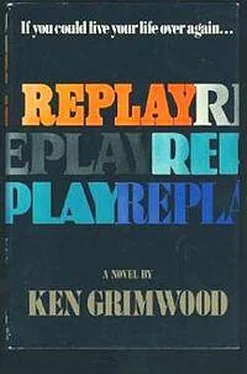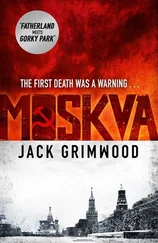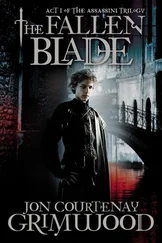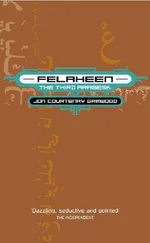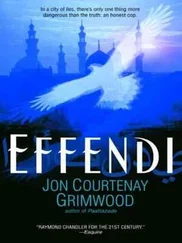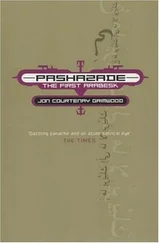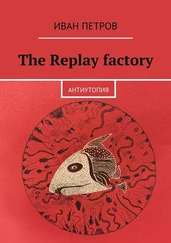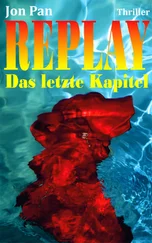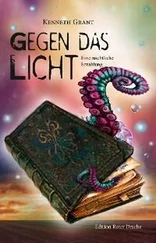He scanned the parking lot in front of Longstreet Hall, searching for his blue-and-white '58 Chevy. It was nowhere in sight. He walked down Pierce Drive, then made a wide circle on Arkwright past Dobbs Hall and up behind the other cluster of men’s dorms; the car wasn’t there either.
As he walked toward Clifton Road Jeff could again hear the barked commands and rote responses from the ROTC field. The sound made something click in his mind, and he turned left over a small bridge across from the post office, then trudged up a road past the Phi Chi medical fraternity. The campus property ended there, and a block farther on he found his car. He was a freshman, so he couldn’t get a parking sticker until next fall; he’d had to park off campus that first year. Even so, there was a ticket on the windshield. He should’ve moved the car that morning, according to the hours posted on a sign above him.
He sat behind the wheel, and the feel and smell of the car evoked a dizzying jumble of responses. He’d spent hundreds, maybe thousands, of hours in this tattered seat: at drive-in movies and restaurants with Judy, on road trips with Martin or other friends or by himself—to Chicago, Florida, once all the way to Mexico City. He had grown from adolescence to adulthood in this car, more so than in any dorm room or apartment or city. He’d made love in it, gotten drunk in it, driven it to his favorite uncle’s untimely funeral, used its temperamental yet powerful V-8 engine to express anger, jubilation, depression, boredom, remorse.
He’d never given the car a name, had considered the idea of doing so juvenile; but now he realized how much the machine had meant to him, how thoroughly his own identity had been meshed with the quirky personality of that old Chevy.
Jeff put the key in the ignition, started it up. The engine backfired once, then rumbled to life. He turned the car around, took a right on Clifton Road past the half-constructed bulk of the Communicable Disease Center. They’d still call it the CDC in the eighties, but by then the initials would stand for Centers for Disease Control, and the place would be world-renowned for its studies of such panic-inducing scourges of the future as Legionnaire’s Disease and AIDS.
The future: hideous plagues, a revolution in sexual attitudes achieved and then reversed, triumph and tragedy in space, city streets haunted by null-eyed punks in leather and chains and spiked pink hair, death-beams in orbit around the polluted, choking earth … Christ, Jeff thought with a shudder, from this viewpoint his world sounded like the most nightmarish of science fiction. In many ways, the reality he’d grown used to had more in common with movies like Blade Runner than it did with the sunny naïveté of early 1963.
He turned on the radio: crackling, monaural AM, no FM band on the dial at all. "Our Day Will Come," Ruby and the Romantics crooned at him, and Jeff laughed aloud.
At Briarcliff Road he turned left, drove aimlessly through the shaded residential neighborhoods to the west of the campus. The street became Moreland Avenue after a ways, and he kept on driving, past Inman Park, past the Federal Penitentiary where Al Capone had served his time. The city street signs disappeared, and he was on the Macon Highway, heading south.
The radio kept him company with its unending stream of pre-Beatle hits: "Surfin' USA," "I Will Follow Him," "Puff, the Magic Dragon." Jeff sang along with all of them, pretended he was listening to an oldies station. All he had to do was hit another button, he told himself, and he’d hear Springsteen or Prince, maybe a jazz station playing the latest Pat Metheny on a compact disc. Finally the signal faded, and so did his fantasy. He could find nothing across the dial except more of the same antiquated music. Even the country stations had never heard of Willie or Waylon; it was all Ernest Tubbs and Hank Williams, not an outlaw in the pack.
Outside McDonough he passed a roadside stand selling peaches and watermelons. He and Martin had stopped at a stand just like that on one of their Florida drives, mainly because of the long-legged farm girl in white shorts who’d been selling the fruit. She’d had a big German Shepherd with her, and after some pointless city-boy/country-girl banter, he and Martin had bought a whole bushel basket full of peaches from her. They hadn’t even wanted the damned things, got sick of smelling them after thirty miles or so, and started using them for target practice on road signs, whooping with inane glee at the "Splat— Kerblang!" that resulted from a successful toss.
That had been, what, the summer of '64 or '65? A year or two from now. As of today, he and Martin hadn’t made that trip, hadn’t bought those peaches, hadn’t stained and dented half the speed-limit signs from here to Valdosta with them. So what did that mean now? If Jeff were still in this inexplicably reconstructed past when that June day rolled around again, would he make the same trip, share the same jokes with Martin, throw those same ripe peaches at the same road signs? And if he didn’t, if he chose to stay in Atlanta that week, or if he simply drove past the girl with the legs and the peaches … then what of his memory of that episode? Where had it come from, and what would happen to it?
In one sense he appeared to be reliving his life, replaying it like a video tape; yet it didn’t seem that he was bound by what had taken place before, not entirely. So far as he could tell, he had arrived back at this point in his life with every circumstance intact—enrolled at Emory, rooming with Martin, taking the same courses that he had a quarter of a century before—but in the twenty-four hours since he’d reawakened here, he’d already begun to subtly veer from the paths he had originally followed.
Standing up Judy last night—that was the biggest and most obvious change, though it wouldn’t necessarily affect anything one way or the other, in the long run. They’d only dated for another six or eight months, he recalled, until sometime around next Christmas. She’d left him for an "older man," he remembered with a smile, a senior, going on to medical school at Tulane. Jeff had been hurt and depressed for a few weeks, then started going out with a string of other girls: a skinny brunette named Margaret for a while, then another dark-haired girl whose name started with a D or a V, then a blonde who could tie a knot in a cherry stem with her tongue. He hadn’t met Linda, the woman he would marry, until he was out of college and working at a radio station in West Palm Beach. She’d been a student at Florida Atlantic University. They’d met on the beach at Boca Raton …
Jesus, where was Linda right now? Two years younger than he, she’d still be in high school, living with her parents. He had a sudden urge to call her, maybe keep on driving south to Boca Raton and see her, meet her … No, that wouldn’t do at all. It would be too strange. Something like that might be dangerously far afield, might create some horrendous paradox.
Or would it? Did he really have to worry about paradoxes, the old killing-your-own-grandfather idea? That might not be an appropriate concern at all. He wasn’t an outsider wandering around in this time, afraid of encountering himself at an earlier age; he actually was that younger self, part and parcel of the fabric of this world. Only his mind was of the future—and the future existed only in his mind.
Jeff had to pull off the road and stop for a few minutes, head in hands, as he absorbed the implications of that. He’d wondered before whether he might be hallucinating this past existence. But what if the reverse were true, what if the whole complex pattern of the next two and a half decades—everything from the fall of Saigon to New Wave rock music to personal computers—turned out to be a fiction that had somehow sprung full-blown into his head, overnight, here in the real world of 1963, which he had never left? That made as much sense as, maybe more than, any alternative explanation involving time travel or afterlife or dimensional upheaval.
Читать дальше
